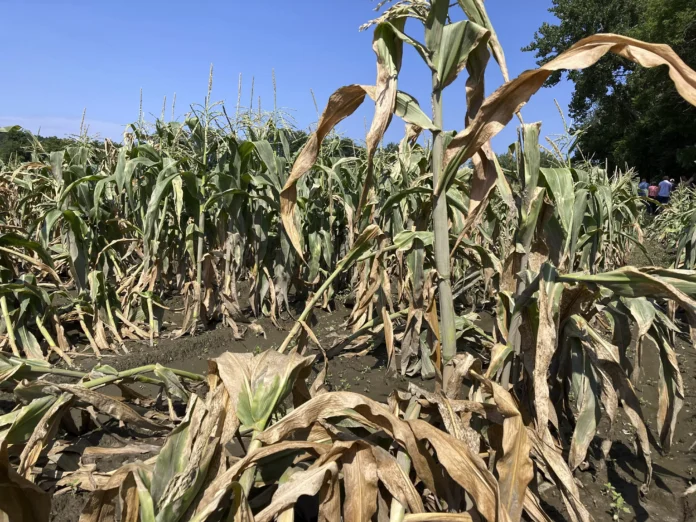The future of the corn industry in the United States is facing some significant challenges, according to a new study. Federal corn crop insurers, who have always been a reliable support for farmers, are expected to see a significant spike in claims filed due to the impacts of climate change. The study predicts a 22 percent increase in claims by 2030 and a staggering 29 percent jump by midcentury. This is a cause for concern not just for the farmers but also for the insurers who are facing mounting economic uncertainty.
The study, conducted by a team of experts from leading agricultural universities, is the first of its kind to analyze the impact of climate change on the corn industry in the United States. It highlights the harsh reality that both corn growers and their insurers will have to confront in the near future. The findings of the study paint a grim picture of the challenges that lie ahead but also provide valuable insights for the industry to prepare for the changes and mitigate the risks.
One of the major reasons for the projected increase in claims is the changing weather patterns. Climate change has caused extreme weather events, such as floods, droughts, and heatwaves, to become more frequent and intense. These unpredictable weather conditions have a direct impact on the yields of corn crops, making them more vulnerable to failure. This, in turn, leads to more claims being filed by the farmers.
Moreover, with the increase in global temperatures, there is a higher risk of pests and diseases that can damage the crops. This will not only result in lower yields but also require additional funds for pest control measures, adding to the financial burden of the farmers. As a result, the insurers will have to pay out more in claims, which will have a significant impact on their bottom line.
The study also highlights the economic impact of climate change on the corn industry. With an increase in claims, the premiums paid by farmers for insurance coverage are likely to rise. This will put a strain on the already struggling farmers who may struggle to afford the higher premiums. The insurers, on the other hand, will have to reassess their risk management strategies and potentially increase their prices to cover the rising costs of claims.
The implications of this study are not limited to just the corn industry. As one of the largest agricultural industries in the United States, the impact of climate change on corn has a ripple effect on the entire economy. Corn is not only a staple food for humans but also a major source of animal feed, fuel, and raw material for various industries. Any disruption in the corn supply chain can have a significant impact on the prices of these products and ultimately on the economy.
However, despite the challenges and uncertainties that lie ahead, there is still hope for the corn industry. The study also suggests strategies that can help mitigate the risks and adapt to the changing climate. These include implementing sustainable farming practices, investing in new technologies, and diversifying crops. By reducing the reliance on corn and introducing more resilient crops, farmers can minimize their losses and the number of claims filed.
The insurance companies, too, can play a crucial role in helping the industry adapt to the changing climate. By working closely with the farmers and understanding their needs, they can develop customized insurance plans that provide adequate coverage and are affordable. Additionally, they can also invest in research and development to come up with innovative solutions that can help farmers cope with the impacts of climate change.
In conclusion, the study’s findings are a wake-up call for the corn industry and the federal crop insurers. The impacts of climate change are real, and they must be addressed with urgent action. The industry needs to come together to find sustainable solutions that can ensure the future of corn production in the United States. By working together, we can mitigate the risks and create a more resilient and sustainable future for the corn industry.

